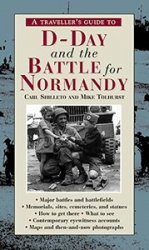The extraordinary fervor for classical learning and classical models of government was practically conterminous with the Revolution: Jefferson and Adams had found classical learning to be ‘‘indispensable’’ for the man who wishes to be a truly educated and useful citizen, but by 1789 Benjamin Franklin, not a college graduate himself and one of the most steadfast opponents of learning Latin and Greek, said that ‘‘learning the ancient [languages] for the purpose of acquiring Knowledge is become absolutely unnecessary’’ (Franklin 1907: 10:30).
Thus after 1790 began the period called by Meyer Reinhold (1984) the Silver Age of classical studies in America. Young America, with its own government, history (however brief), and independence, sought to be independent of the predominantly British and old-fashioned dependence on the classics, asking whether such studies could be truly ‘‘American.’’ Now the calls for a national literature (the Connecticut Wit Joel Barlow rejected emulating Homer for his failed epic, the Columbiad), a national educational system (Benjamin Rush proposed a national college system), and ultimately a distinctly national brand of scholarship (by Emerson in ‘‘American Scholar,’’ 1837), all required a step away from the studies that now seemed elitist, irrelevant, and useless. Some felt patriotic eschewing the classics; others simply reacted against its importance to the earlier generation. However useful classics had been in guiding the Founding Fathers, its purpose had been served; managing the new country required different models.
The changes were first felt in schools, where decades of incompetent or indifferent teaching had long made classics an easy target. By 1760, the rigorous British-style grammar school curriculum was gone, but the lack ofAmerican textbooks remained a problem. The various editions of Caleb Alexander’s A New Introduction to the Latin Language (1795) from publishers like William Poyntell of Philadelphia and Wells and Lilley of Boston were so grotesquely disfigured by misprints as to be unusable. The debate also went on at the collegiate level, with little effect until students at Yale attempted to remove knowledge of Greek and Latin as formal entrance requirements. In writing the Yale Report of 1828, the classicist James L. Kingsley and Yale’s president, Jeremiah Day, considered the traditional arguments of utility and Anglo-centrism against those who asserted that at the root of their own language, literature, and culture lay the masterpieces of Greek and Roman literature and philosophy. The report asserted not only the core importance of classics for western thought but also the Revolution’s belief that
The models of ancient literature, which are put into the hands of the young student, can hardly fail to imbue his mind with the principles of liberty; to inspire the liveliest patriotism, and to excite to noble and generous action, and are therefore peculiarly adapted to the American youth. (Yale Report 1829: 345)
Thus the place of classics at the center of the collegiate curriculum remained settled until the end of the century.
In 1815, well before the Yale Report, four recent graduates of Harvard, George Bancroft, George Ticknor, Joseph Green Cogswell, and the newly appointed (and first) Eliot Professor of Greek, Edward Everett, recognized that America had no classical scholars. In 1816, Ticknor wrote, ‘‘We do not yet know what a Greek scholar is; we do not even know the process by which a man is to be made one’’ (Ticknor 1876: 1:53). The four friends went to Germany in pursuit of PhDs and an introduction to the German science of philology. Upon their return, Cogswell took the lead in trying to transplant the German system of seminars, original research, and publication, but the teaching corps of America was unprofessionalized in a land where ‘‘scholarship’’ had the English connotation of reading for one’s own edification rather than for publication of some new and true fact. Everett, who had not only heard the great German philologists but had touched Greek marble in 1820, returned to Cambridge to present lectures to both academic and nonacademic audiences that were so beautifully expressed and full of the new matter from Germany that his student Ralph Waldo Emerson called them ‘‘a new morning’’ in America. But the experiment was short-lived, for the German system could not be transplanted this early and the American system remained for a half-century basically what it had been, the province of amateurs.
Almost contemporaneous with Ticknor and Everett’s experiment and the assault on the predominance of Latin in the schools came an interest in Greek, a language that John Adams had been advised was ‘‘a meer curiosity’’ (Adams 1962: 1:55). Always marginalized and taught in schools only to the level of college admission, in other select quarters Greek was touted as the salvation of American education, propelled in part by the accounts and pictures brought back from Greece by Nicholas Biddle of Philadelphia in 1806, even though Rome remained a popular Grand Tour stopover (Vance 1989).
American Greek textbooks, grammars, and dictionaries (often derived from German models) began to appear along with Latin textbooks after the Revolution. The publication of an accurate fourth edition of Dalzel’s Collectanea Graeca majora (1824) under the supervision of Harvard classicists in 1824 gave at last an accurate and usable (if boring) text that would be used in schools for the next half-century. In New England, the North American Review asserted the primacy of Greek, while in South Carolina, the diplomat and editor Hugh Swinton Legare, a friend of Ticknor and a lover of Greek liberality who distrusted Greek politics, wrote of the appropriate model for the young nation much as the Yale Report had, ‘‘Much better to imitate the old and elegant humanity of Greece, than the barbaric pride of a Norwegian or Hunnish stateliness; and... despise that slavish and nauseating subserviency with which all European literature is steeped through and through’’ (Legare 1828: 8). In the nineteenth century, in America as in Europe, the benefits of a classical education were slowly being extended to women. Through Colonial times, in America as in Europe, it was feared that teaching girls Latin would later distract them from their household duties. Boys needed classical languages for their professions; girls did not. Sarah Bradford complained in 1810 to Mary Moody Emerson, ‘‘I am sometimes almost tempted to wish I knew nothing about Latin...I am as careful to conceal my books and as much afraid of being detected with them as if I were committing some great crime’’ (Kerber 1997: 246-7). The notion that women were not up to learning ancient languages and certainly of practicing philology survived through the nineteenth century. But one day in 1878 a young woman named Abby Leach strode confidently into the office of Harvard’s Eliot Professor of Greek, William Watson Goodwin, begging for the best classical education the country had to offer. Confident that as a woman she could not translate Greek, Goodwin offered her a page of Xenophon to translate at sight and she rendered it so flawlessly that Goodwin engaged a number of his colleagues to teach Leach and a group of other women at what was called The Annex, which later developed into Radcliffe College. The daughter of a wealthy Baltimore Quaker, Martha Carey Thomas was so determined to be the first woman to receive an American doctorate that she enrolled in one of B. L. Gildersleeve’s first classes at the new Johns Hopkins University, but she was soon so overwhelmed by the workload and the restrictions put upon her as a woman (she was not allowed to attend the seminars, since she would be a distraction) that she fled to Europe, where she took a degree from Zurich in 1882. She became the pioneering second president of Bryn Mawr College. The honor of being the first woman to receive an American doctorate fell to Helen Magill, who received her PhD from Boston University in 1877 (she went on to pass the Cambridge Tripos with honors in 1881), but at age 37 she married Andrew D. White, former president of Cornell, and her professional life was over.
It was likewise thought that African-Americans, whose enslavement had been so assiduously argued from Aristotle, were incapable of learning Greek and Latin. John C. Calhoun said that if he ‘‘could find a Negro who knew the Greek syntax,’’ he ‘‘would then believe the Negro was a human being and should be treated as such’’ (Crummell 1992: 292). Walter Hines Page, a former student in Gildersleeve’s seminary and future editor of the Atlantic, visited a black secondary school in Virginia after the Civil War to hear the students reciting and translating Greek. Back in Richmond, no one believed that he had actually heard this. With the rise of an educated black middle class after Reconstruction and the establishment of predominantly black colleges and universities, there emerged a small but significant group of black classicists led by William Sanders Scarborough, who seemed as well connected with the black intelligentsia as his counterpart Gildersleeve was with the white Establishment (Ronnick 2004). Black writers from Phillis Wheatley to Derek Wolcott and Toni Morrison have embraced the classical past in their work.




 World History
World History









